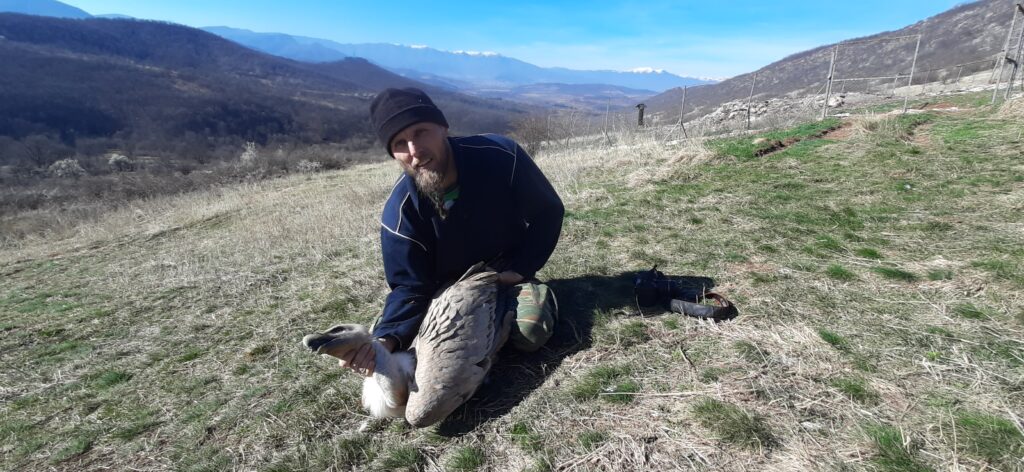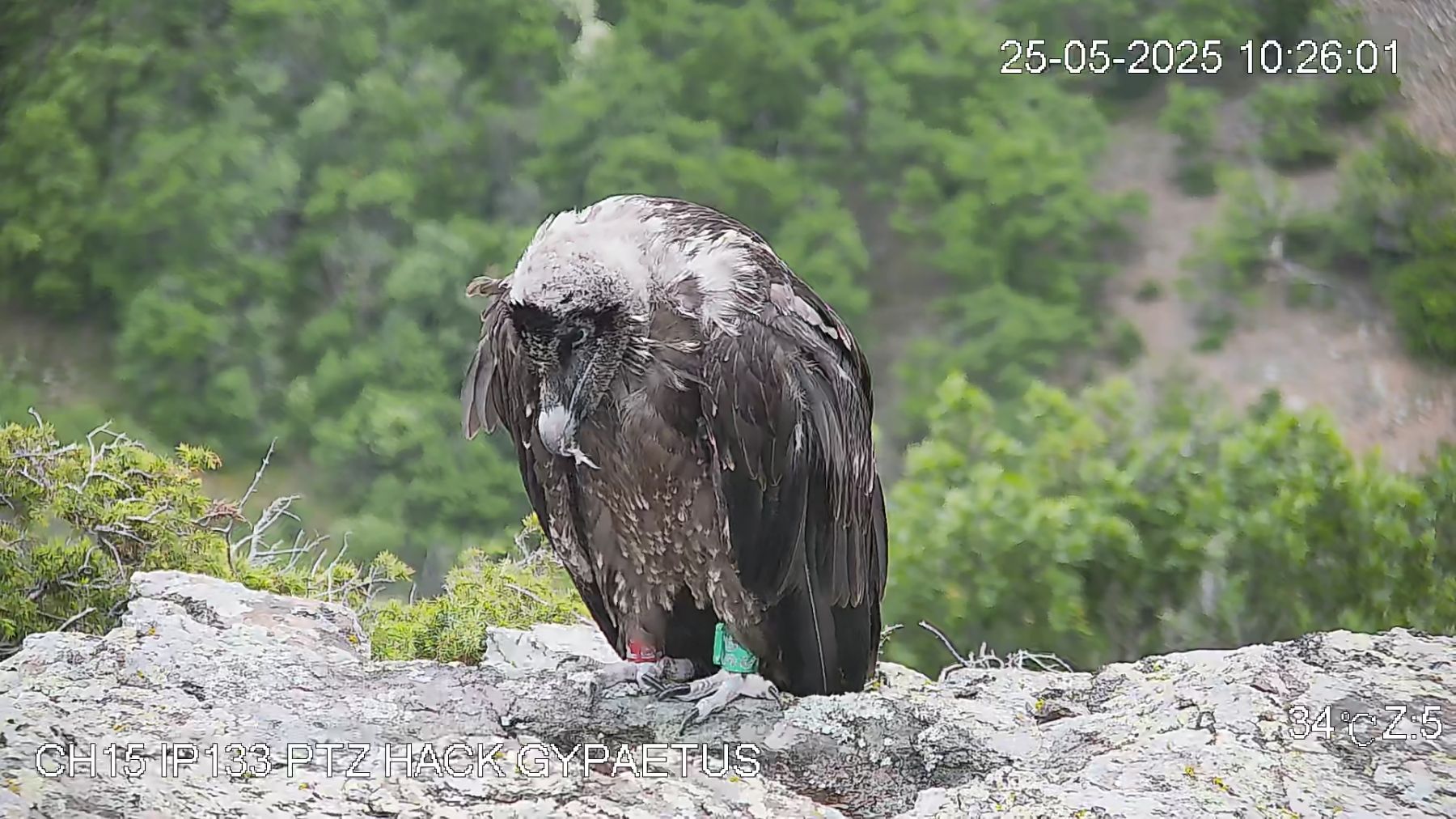Vultures are known for their long-range dispersal habits, as they tend to explore vast areas, foraging and looking for roosting sites. At the Vulture Conservation Foundation (VCF), we closely monitor vultures in Europe, both wild-hatched and released, that have been fitted with a lightweight GPS transmitter. Over the years, we have seen incredible journeys, but this one caught our attention! A Griffon Vulture (Gyps fulvus), probably wild-hatched, made a journey from Spain to the Balkans. In Bulgaria, the bird was fitted with a GPS transmitter and we have been following its movements since then. Can you guess where it is now?
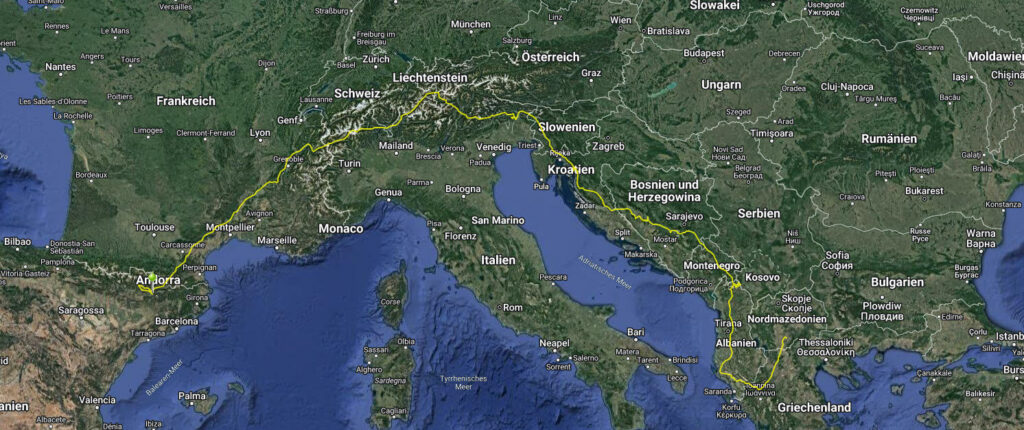
Griffon Vulture from Spain to the Balkans: visiting the Vrachanski Balkan Nature Park
When in March 2022 a ringed Griffon Vulture was caught in the Vrachanski Balkan Nature Park (Bulgaria), the local team was far from guessing the birds’ origin. Thanks to the ornithological rings from Barcelona Nature Museum that it had, the local team was able to get more information about the vulture. They contacted the Catalan Institute of Ornithology and the ringing group GACO, who sent information about the Griffon Vulture: it was ringed as an adult bird in Barcelona in 2021.
“We aged the Griffon vulture as a very old individual, at least 10 years old. However, as it’s not something we can guarantee, we only reported it as an adult.”
In the fall of 2022, the vulture was seen in Serbia and in March, when it visited Bulgaria, the local team was able to catch it and fitted it with a GPS transmitter. Despite the fact that many Griffon Vultures reintruduced in Vrachanski were translocated from Spain, a wild traveller that makes its way alone from Spain to Bulgaria is a rare event!
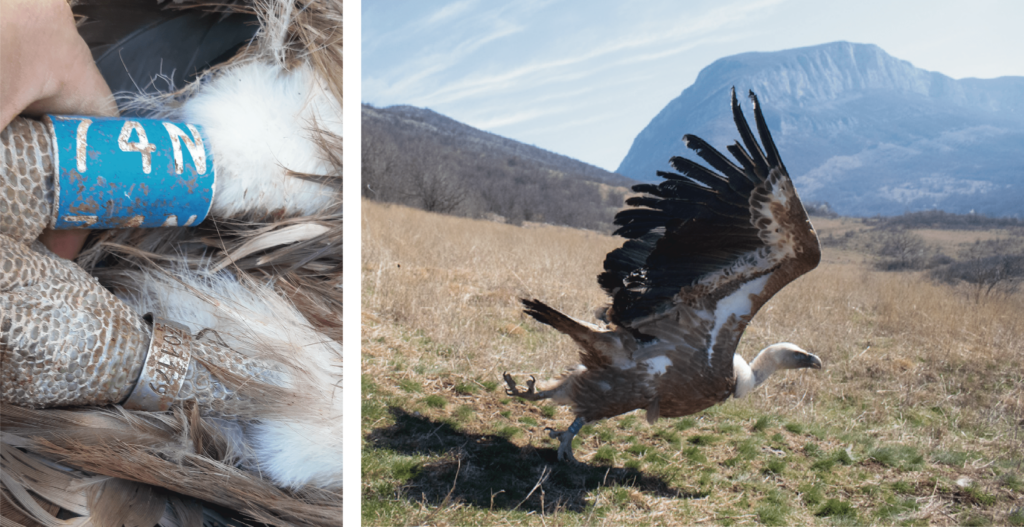
The journey back to Spain
With the data received from the GPS transmitter, we were able to follow the Griffon Vulture’s movements on its quest across the Balkans. After Bulgaria, the bird headed south to Greece and crossed the border with Albania, where it reached the coast. Suddenly, it started travelling upnorth, flew over Montenegro, Bosnia and Herzgovina, Croatia, Slovenia, Italy, Switzerland and France and Andorra, before reaching Catalonia (Spain) in April 2023. An impressive journey of almost 3000 kms across 11 countries!
Since its arrival in Catalonia, the Griffon Vulture visited Girona, the surroundings of Barcelona and Tarragona. But its explorer demeanour made it travel further south, cross Valencia and reach Benidorm. Currently, the Griffon Vulture moved slightly north and has been visiting the area around Teruel.
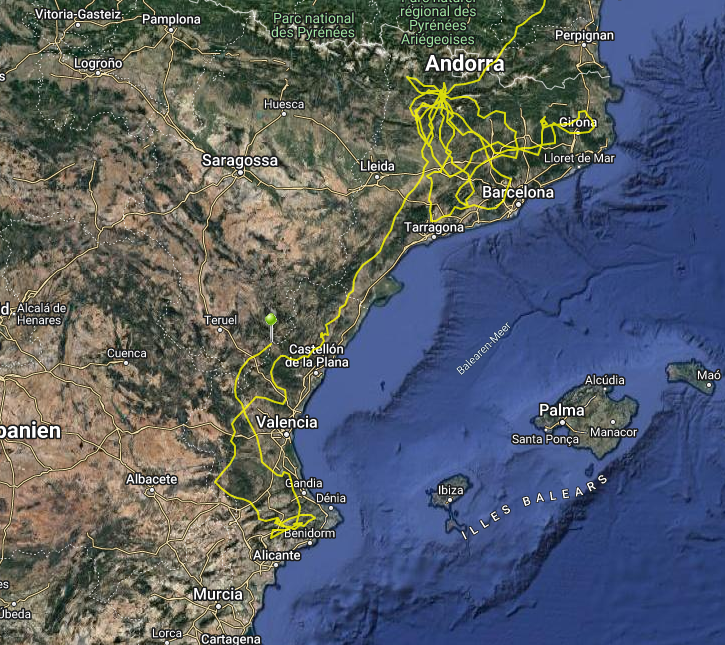
Griffon Vultures: impressive birds that contribute to healthy ecosystems
Griffon Vultures have an impressive soaring ability. With a wingspan of 2.4 – 2.8 meters, they can stay aloft for hours, using thermal updrafts to gain altitude without flapping their wings. Most adults seem to be sedentary, staying year-round at their breeding colonies. However, some individuals make autumn migrations towards the south, especially juveniles and immatures, and tend to return in the spring. For wild-hacthed birds, it is common to see them vastly exploring other regions, enduring journeys of thousands of kms, as this Griffon Vulture did.
As an obligatory scavenger bird, Griffon Vultures play an important role in maintaining a healthy ecosystem. By removing dead animals from the environment, they likely reduce the risk of disease outbreaks, which can be transmitted by decaying or infected carcasses, and promote nutrient cycle. Their efficient carcass disposal service can help control the population of predators, such as feral dogs, which might be pathogens of diseases.
The importance of following vultures’ movements
In many projects running throughout Europe, the VCF in collaboration with many partners, equips released and wild-hatched birds with GPS tags or satellite transmitters. The data provided is extremely useful to understand their behaviour, migration patterns and foraging ranges. This information assists us in carrying out widespread actions that mitigate the risks they face, safeguard flight paths and support the comeback of these vulnerable species.
Tagged birds often act as sentinels too. Once suspicious data is received, we coordinate with local partners to check the area and find out possible causes, which allows a swift response to poisoned carcasses or other specific threats impacting wildlife.
We are curious to see where this Griffon Vulture will be travelling in the coming months!
Many thanks to Hristo Peshev, from the Bulgarian Association Fund for Wild Flora and Fauna, who tagged the Griffon Vulture and provided us detailed information.
